MercoPress. South Atlantic News Agency
Tag: economy
-
Wednesday, February 14th 2018 - 16:28 UTC
Clean Oil That Only Costs $20

The United States is in the midst of an energy revolution.
Oil production has risen by 5 million barrels per day (bpd) since 2010, an increase of nearly 100 percent. New technology, particularly techniques in shale oil drilling, has opened up vast new opportunities for oil and gas companies. -
Friday, February 9th 2018 - 09:56 UTC
As Dow Jones plunges 10% points, fears of a bear market and ripples effects on the economy
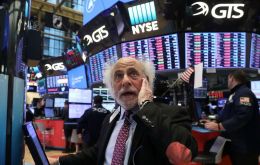
The United States Dow Jones industrial average nosedived more than 1,000 points on Thursday, registering another eye-popping loss for the closely-followed index, as wild trading and fears of rising interest rates around the world took hold of traders. The Dow as well as the S&P 500, a broader stock index, are now down more than 10% from their all-time highs, passing an important psychological barrier known as a “correction” for the first time in two years.
-
Saturday, January 20th 2018 - 09:26 UTC
Argentina drastically slashes docking services to lower exports' costs
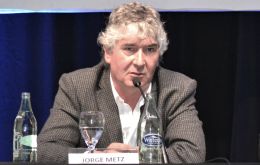
Argentina has set a maximum rate paid for port docking and undocking services, the government said in its official gazette, a change the Transportation Ministry said would slash docking costs by up to 40%. The move comes as President Mauricio Macri seeks to lower the cost of exporting food from the world’s No. 3 soy and corn exporter and the leading shipper of soybean livestock feed.
-
Friday, January 19th 2018 - 09:27 UTC
Beijing claims economy growth picks up after seven years, but there are doubts about Chinese stats

China's economy grew by 6.9% in 2017 according to official data - the first time in seven years the pace of growth has picked up. The figure beats Beijing's official annual expansion target of about 6.5% and is good news for the global economy since China's impact and the better-than-expected data is likely to cheer investors around the world.
-
Thursday, January 18th 2018 - 09:44 UTC
China and Japan slow down purchase of US Treasury securities

China cuts its holdings of U.S. Treasury securities in November 2017 after adding US$ 8.4bn in October. China's holdings of U.S. treasuries dropped by US$ 12.6bn to US$ 1.1766 trillion in November last year. China remained the largest holder of U.S. treasuries.
-
Wednesday, January 17th 2018 - 09:32 UTC
Hard times in Cuba: electricity and fuel cuts, slashed imports and payments to suppliers delayed
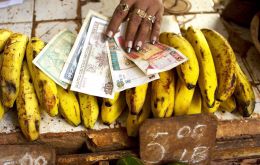
Cuba has not provided a detailed breakdown of key economic activity in its annual statistical abstract for the first time this century, leaving would-be investors more in the dark than usual about the cenrtralized-run economy.
-
Tuesday, January 16th 2018 - 09:44 UTC
Meirelles brushes aside impact of S&P's lower rating: 'growth will continue'
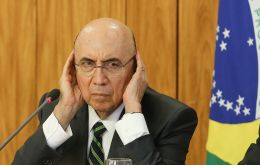
Brazilian Finance Minister Henrique Meirelles said that a recent decision by Standard & Poor’s to cut the nation’s credit rating will not affect 2018 economic growth. Speaking to journalists in Rio de Janeiro, Meirelles added that he was expecting close to 2.5 million jobs to be created in Brazil this year and GDP growth of around 3%.
-
Tuesday, January 16th 2018 - 09:34 UTC
Economic activity in Brazil expands for third month running
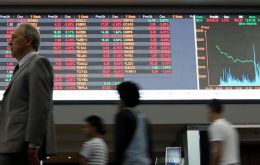
Economic activity in Brazil expanded for a third straight month in November, the longest stretch of gains since 2014, suggesting strong momentum at the end of the year. The central bank’s economic activity index rose 0.49% from October after seasonal adjustments
-
Friday, January 12th 2018 - 10:50 UTC
Argentina inflation reached 24.8% in 2017, well above central bank's target

Consumer prices in Argentina rose 24.8% in 2017 after a sharp 3.1% increase in December, government data showed on Thursday, well above the central bank's target range for annual inflation of 12-17%t. The monthly reading, which was above median expectations in December of 2.5%.
-
Wednesday, January 10th 2018 - 09:52 UTC
Argentine central bank cuts basic rate to 28%; annual inflation target 15%
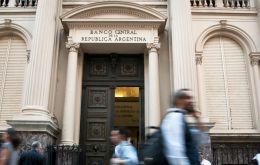
Argentina’s central bank cut its policy rate to 28% from 28.75%, two weeks after relaxing its 2018 inflation target, the bank said on Tuesday. The bank’s first rate cut in 14 months came after a December 28 news conference announcing an official inflation target for this year of 15%, up from the bank’s previous target range of 8% to 12%.
